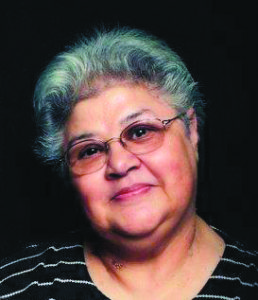

Returning to America in 1829, Jean Baptiste Charbonneau set aside his cultivated manners and fell into the rough-and-tumble existence of the mountain man. He ranged the length and breadth of the American West, hunting, trapping, guiding and exploring.
Unfortunately, Baptiste maintained no diaries or journals, so information about his life is known only through the personal recollections documented by other explorers and travelers, fur company records, and government files.
He is reported traveling with Joe Meek in 1831, and with Jim Bridger the following year. In 1839-40, he was a member of a party led by Louis Vasquez and Andrew Sublette, who built Fort Vasquez on the South Platte River near Platteville, Colorado. Baptiste recorded St. Louis as his “home,” and made several voyages boating furs down the Platte to the Missouri River to St. Louis. On one of these trips, his camp was visited by Lieutenant John C. Fremont who was on his first tour of western exploration. He described Baptiste’s hospitable reception, who “concocted a very good mint julep.”


When the Mormon Battalion, commanded by Lieutenant-Colonel Philip St. George Cooke, marched from Santa Fe to San Diego in 1846, Jean Baptiste Charbonneau served as a guide. Some of Brigham Young’s followers were inducted into this battalion to aid in the conquest of California during the Mexican War. Baptiste and other guides let the wagon train across the deserts of New Mexico and Arizona.
After the Battalion arrived at its headquarters in San Diego, January 30, 1847, Baptiste was discharged. Between February and November of 1847, Baptiste was appointed alcade (a combined function of mayor and judge) for the Mission San Louis Rey, a few miles north of San Diego.
Troubled by the abuse of landowners toward certain Indians, who were treated as virtual slaves, he resigned his official duties and joined the California gold rush stampede. He evidently did not strike it rich, as he was recorded as a hotel clerk in Auburn, California, in 1861.
Among his fellow mountain men, Baptiste himself earned a keen reputation for his quick thinking and resourcefulness and his educational and cultural attainments. He was known to recite Shakespeare around mountain campfires. One man wrote that Baptiste had “every quality which constitutes excellence in a mountaineer, whether of indomitable courage, or perfect indifference to death or danger; with an iron frame capable of withstanding hunger, thirst, heat, cold, fatigue, and hardships of every kind; of wonderful presence of mind, and endless resource in times of peril.”
In 1866, he left Auburn with two companions and headed toward new gold discoveries in Montana. When the three men reached the Owyhee River in Oregon, they were all worn down by cold, rainy weather. As they crossed the river on horseback, they were drenched up to their waists in the icy waters.
The difficult trip took its toll on the 61 year old Baptiste, who contracted pneumonia. In a desperate effort to save his life, his two friends carried him twenty-five miles to Inskip’s ranch and stagecoach station, the nearest shelter. There, Jean Baptiste Charbonneau died on May 16, 1866. His body was buried in a remote, primitive cemetery in the tiny Jordan Valley hamlet of Danner, Oregon. On March 14, 1973, his gravesite was entered into the National Register of Historic Places.
The final entries about this educated, enigmatic, much traveled French-Indian son of Sacagawea, the expedition papoose, are found as obituary notices in newspapers. The following excerpt is from the July 7, 1866, edition of The Placer Herald, Auburn, California: “We are informed by Mr. Dana Perkins, that he has received a letter announcing the death of J.B. Charbonneau, who left this country some weeks ago with two companions for the Montana Territory. The letter is from one of the party, who says Mr. C. was taken sick with mountain fever, on the Owyhee, and died after a short illness.”
No Comments
Leave a comment Cancel